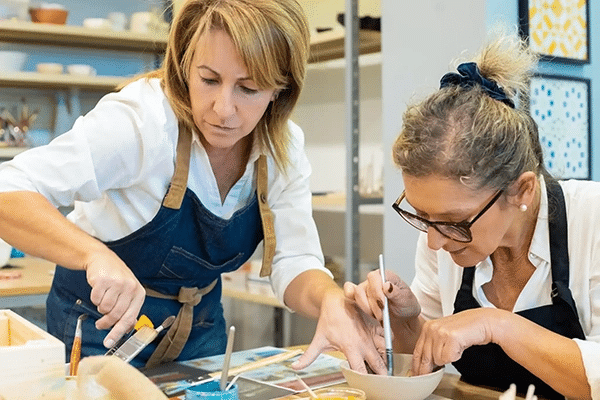Loneliness can kill you. But it doesn’t have to.
In an exciting new video called “Embrace Your Signal: Loneliness, Art, and the Brain,” we share the proven ways art shapes our minds and behavior for the better. In just under three minutes, the video uses simple visuals to illustrate the ways art rewires the lonely brain.
Be Curious
Are you lonely? If you find it tough to answer, you’re not alone. Loneliness often carries a stigma, making it hard to discuss openly. But the truth is that we all feel lonely from time to time. It’s part of being human. Think about loneliness not as a problem, but as a chance to get to know yourself better.
Being curious means asking where your loneliness comes from and what it feels like. Our goal is to keep your curiosity alive by sharing insights about loneliness and how it relates to you, the people you know, and society as a whole. We hope you’ll gain a new perspective on your own experience with loneliness and how to navigate it!

What is Loneliness?
Loneliness is the gap between the social connections you want versus what you feel you have. Just like how you feel thirsty when you need water, feeling lonely is a way your body tells you that you need more human connection.
More than half (58%) of U.S. adults reported feelings of loneliness in 2021 (Cigna).
%
How Does Loneliness Affect Us?
Loneliness can hurt us in many ways. It can make us feel depressed, anxious, and even suicidal. Loneliness can also make our hearts, bodies, and immune systems weaker. Feeling lonely can make it harder to talk to others and work together.
Loneliness can be as deadly as smoking 15 cigarettes per day.
In fact, social isolation and loneliness are associated with a 30% increased risk of heart attack, stroke, or death from either (Journal of the American Heart Association).
The Three Types of Loneliness
Feeling lonely doesn’t just mean you feel alone. You can be with many people but still feel like you are not really connected to them. Just like there are many types of love, there are also different types of loneliness. Knowing the different types can help us address them effectively.
To find out what kind of loneliness you’re feeling, you can ask yourself a few questions! Read more about the three kinds of loneliness below. Have you felt any of these before?
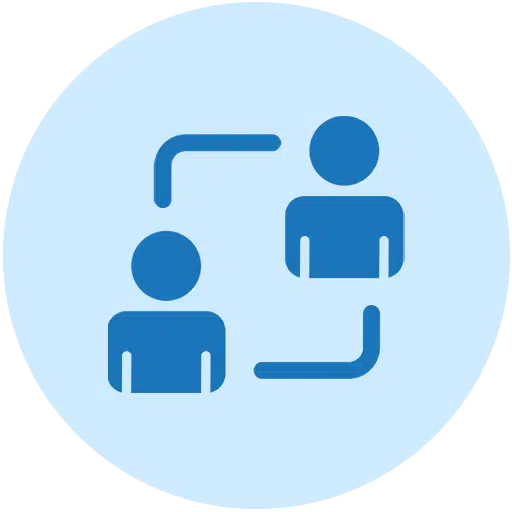
Psychological
This might be the “flavor” of loneliness you’re most familiar with. How we feel about our social connections and close relationships can contribute to feelings of interpersonal or psychological loneliness.
“Is there someone that I can tell my troubles to?”
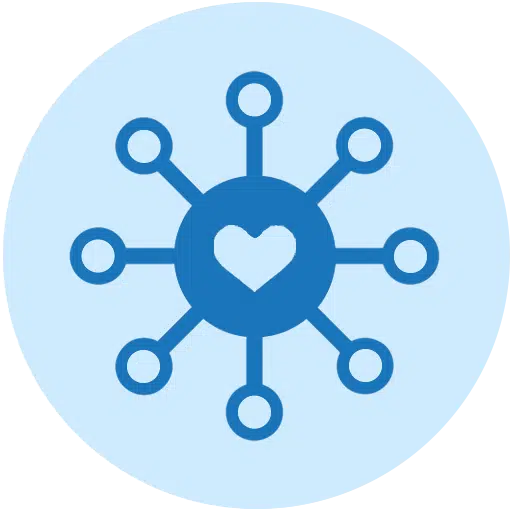
Societal
This type of loneliness is all about belonging– experiencing acceptance and safety. Societal or organizational loneliness can impact anyone in workplaces, schools, or communities.
“Am I safe?”
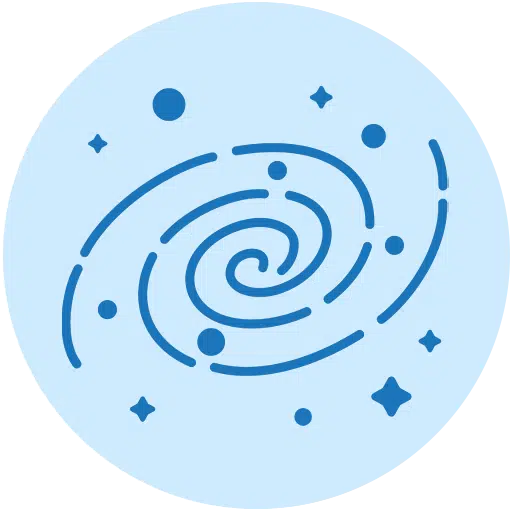
Existential
Having existential thoughts or spiritual questions is a part of life, but if someone has these types of thoughts very often, or is upset by them, they can result in feelings of isolation and loneliness.
“Am I disposable?”
The Five Territories of Loneliness
These five territories show common experiences where people might feel lonely if they don’t have help or guidance. Each area has its own set of challenges to work through. Can you relate to any of these areas in your own experiences with feeling lonely?
Trauma
Trauma refers to a kind of harm that can be physical or emotional, happening suddenly or over a long time. It can be caused by stressful events like war, sexual assault, terrorism, childhood abuse, natural disasters, mass shootings or even the COVID-19 pandemic.
Illness
Getting sick can sometimes make a person feel separated from their friends and family, as if they are dealing with life’s problems all by themselves. This can happen with many kinds of illnesses, including cancer, cardiovascular issues, obesity, and mental health problems.
Aging
Older people might feel lonely due to loss of friends or family members and cognitive decline. They might also feel left out of society due to financial issues or health challenges. Additionally, they might feel a deep kind of loneliness as they think about the end of their life and what they will leave behind.
Difference
Feeling different from others can make it hard to feel confident about who you are, leading to societal loneliness. This can be experienced by first-generation immigrants, members of the LGBTQ+ community, people of color, people with disabilities, or anyone who may feel different.
Modernity
The modern world has changed the ways people socialize. Instead of meeting in person, we now have options like social media, chat forums, and online dating apps to connect with others. Even though these platforms can help us connect, they can also make us feel lonely.
The Pyramid of Vulnerability
Like most public health risks, loneliness is experienced on a spectrum. It’s important to get curious about loneliness so we can know what to do about it! Take a look at the categories below—they are often used by professionals to guide assessment, prevention, and treatment of social isolation and loneliness.
Click on the different parts of the pyramid to learn more about each category.
Read Project UnLonely: Healing Our Crisis of Disconnection
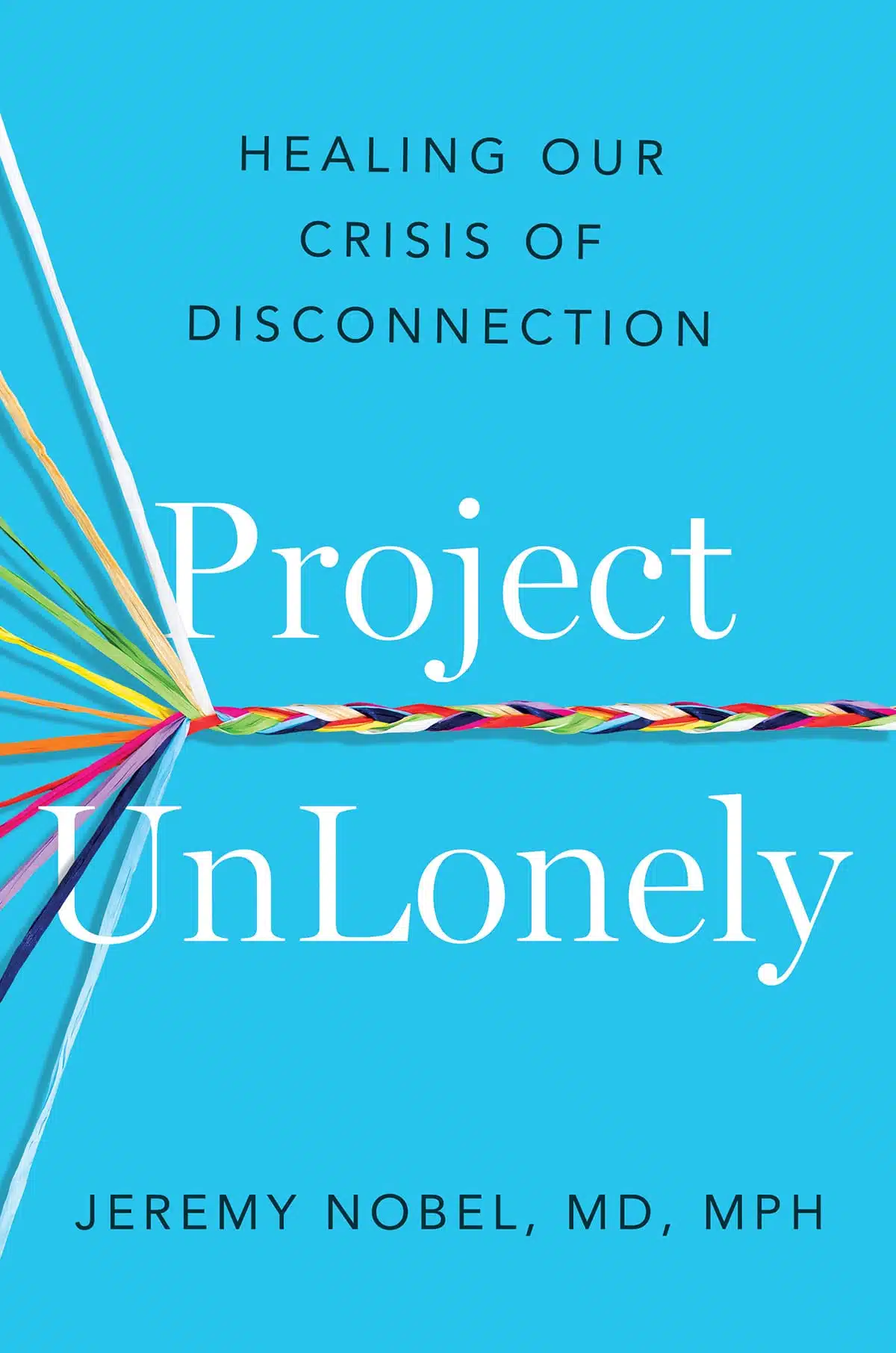
Even before 2020, chronic loneliness was a private experience of profound anguish that had become a public health crisis. Since then it has reached new heights. Loneliness assumes many forms, from enduring physical isolation to feeling rejected because of difference, and it can have devastating consequences for our physical and mental health. As the founder of Project UnLonely, Jeremy Nobel unpacks our personal and national experience of loneliness to discover its roots and take steps to find comfort and connection.
Dr. Nobel leverages many voices, from pioneering researchers, to leaders in business, education, the arts, and health care, to the lived experience of lonely people of every age, background, and circumstance. He discovers that the pandemic isolated us in ways that were not only physical, and that, at its core, a true sense of loneliness results from a disconnection to the self. He clarifies how meaningful reconnection can be nourished and sustained. And he reveals that an important component of the healing process is engaging in creativity. Make things!
Supportive, clear-eyed, and comforting, this is the book we will take into our new normal and rely on for years to come.
Order the Book
Additional Resources
- Our Epidemic of Loneliness and Isolation – Read the U.S. Surgeon General’s advisory on the healing effects of social connection and community.
- Office of the Surgeon General – Learn more about how we can work together to advance social connection and improve our nation’s public health.
- Your Brain on Art – In this New York Times bestseller by Susan Magsamen and Ivy Ross, you’ll explore the science of neuroaesthetics, which offers proof for how our brains and bodies transform when we participate in the arts—and how this knowledge can improve our health, enable us to flourish, and build stronger communities.
Stay Connected
Don’t miss out on the latest updates from the Foundation for Art & Healing! Sign up for our mailing list to stay in the loop on all things art, healing, and connection! As part of our community, you can become an UnLonely Ambassador. You’ll receive:
🎥 Bi-weekly featured films from Project UnLonely
🎨 Creative activities to boost your wellbeing and spark inspiration
📅 Invitations to exclusive events, webinars, and workshops
